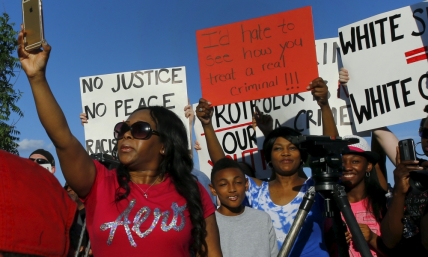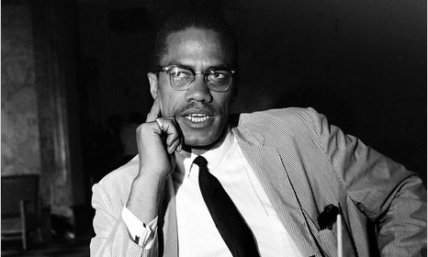Will We Teach the True Story of Thanksgiving?
Thanksgiving. That word holds profound meaning for Americans, most of it nostalgic. I remember in grade school when our classes would present Thanksgiving pageants that retold the story of Thanksgiving.

Thanksgiving. That word holds profound meaning for Americans, most of it nostalgic. I remember in grade school when our classes would present Thanksgiving pageants that retold the story of Thanksgiving.

In moments like these it is tempting to stand in solidarity with the disciple Peter, who tried to defend the helpless with military might.

In 1851, attendees of a feminist convention gathered in a packed hall in Akron, Ohio. It was a time when — even in the midst of a fight for women's rights — mostly men spoke. They talked of dainty women — delicate and deserving of special protection.

I didn't see the film Malcolm X in theaters. I waited to see it on video. Big mistake.

Regardless of one's personal nostalgia for the flag, the so-called Southern cross served as a symbol of the fight to preserve the institution of slavery.

Someone recently asked me how I answer critics of the Open Letter to Franklin Graham that I co-authored last week.

We write to you in the spirit of Matthew 18: we aim to reconcile with you. You have sinned against us, fellow members of the body of Christ.

I cringed. Recently, I sat watching a cable news broadcast — can't remember which one. What I do remember is it featured people doing good in the world … and it made me cringe.

I grew up aware of the women of the civil rights movement — my mother was one of them.

This year I have come to understand Advent as protest — protest against the wartime impulse of men to tread down God's image on earth.
